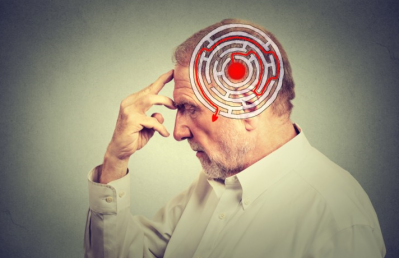Add-on probiotics can support treatments for depression, study suggests

Patients with depression often suffer from intestinal and digestive problems, which indicate the importance of gut bacteria in mental health outcomes.
This is demonstrated by an experiment that observed depressive-like behaviour in mice after implantation with intestinal flora from depressed patients.
Anti-depressants are the predominant treatment for depression but are moderately effective in two-thirds of patients and 30% of resistant patients experience “residual symptoms”.
“Novel and more efficient treatment approaches are therefore urgently needed,” according to the authors of a new study published in Translational Psychiatry.
Lead researcher Anna-Chiara Schaub comments: “With additional knowledge of the specific effect of certain bacteria, it may be possible to optimize the selection of bacteria and to use the best mix in order to support treatment for depression.”
Supporting evidence
Recent meta-analysis confirms the potential of probiotics in the treatment of depressive symptoms and is reinforced by various clinical studies, including a 90-day study that showed treatment with bacillus coagulans reduced symptoms in patients diagnosed with major depressive disorder (MDD) and irritable bowel disease (IBS).
However, positive outcomes only present when probiotic treatment was administered alongside anti-depressants.
There is also limited research on the mechanism of probiotics on gut microbiota and brain function in patients with depressive symptoms and IBS, and none on patients with MDD.
Methodology
The effects of short-term, high-dose probiotic add-on therapy on microbiota composition and brain structure and function was explored.
Study authors hypothesised that supplementation would increase microbial diversity and ameliorate depressive symptoms four weeks after administration - and up to one month later, compared to the placebo.
Participants with diagnosed depressive symptoms were recruited from in-patients at the University Psychiatric Clinics in Basel and randomly allocated to two study groups (intervention and placebo).
In addition to their usual treatment, patients consumed a probiotic supplement (Vivomixx) containing eight bacteria strains and mixed with a cold non-carbonated drink, at a daily dose of 900 billion colony forming units (CFU). The placebo comprised maltose with no bacteria.
Three assessments were carried out during the month-long trial: before, directly after and four weeks following the intervention.
Bacterial abundance
A comparison of the two study groups at post-intervention and follow-up, showed the intervention group maintained probiotic diversity but reductions were observed in the placebo.
Probiotic administration increased the abundance of Lactobacillus bacteria strains and was the only significant interaction. “The antidepressant effect of the probiotics could be related to the abundance increase of these species, which is congruent with previous reports,” the authors’ comment.
The proliferation of Lactobacillus reduced depressive symptoms and correspond to other studies that demonstrate its capacity to enhance integrity of the intestinal barrier, improve immune tolerance, anxiety, and depressive behaviour, and reduce bacteria translocation.
The researchers explain that strains of the Lactobacillus genus can produce short-chain fatty acids (SCFA) such as acetate, butyrate, and propionate, which help maintain host health and exert beneficial effects without changing the gut microbiome.
However, probiotic effects were only significant in a subsample with high compliance and accentuated in the follow-up after eight weeks, “indicating a remission rate of 55% in the probiotics group compared to a 40% remission rate in the placebo group”.
Conclusion
Despite the ‘polypharmacy’, supplementation had a beneficial effect on clinical progression.
Results conform with other studies on the merits of probiotics and “underscore the potential of probiotics as add-on treatment in depression”, although the authors point out that positive outcomes are defined by the probiotic formula.
“Generally, the choice of the probiotics formulation and its dose is of great importance. As there is no clear evidence yet which bacteria specifically help to alleviate depressive symptoms.”
They add that while probiotics might “halt the decay of the bacterial community”, characteristic in depression and during the intervention period, a longer follow-up is required to check the effectiveness over an extended period.
Source: Translational Psychiatry
Published online: doi.org/10.1038/s41398-022-01977-z
‘Clinical, gut microbial and neural effects of a probiotic add-on therapy in depressed patients: a randomized controlled trial’
Anna-Chiara Schaub et al.

















